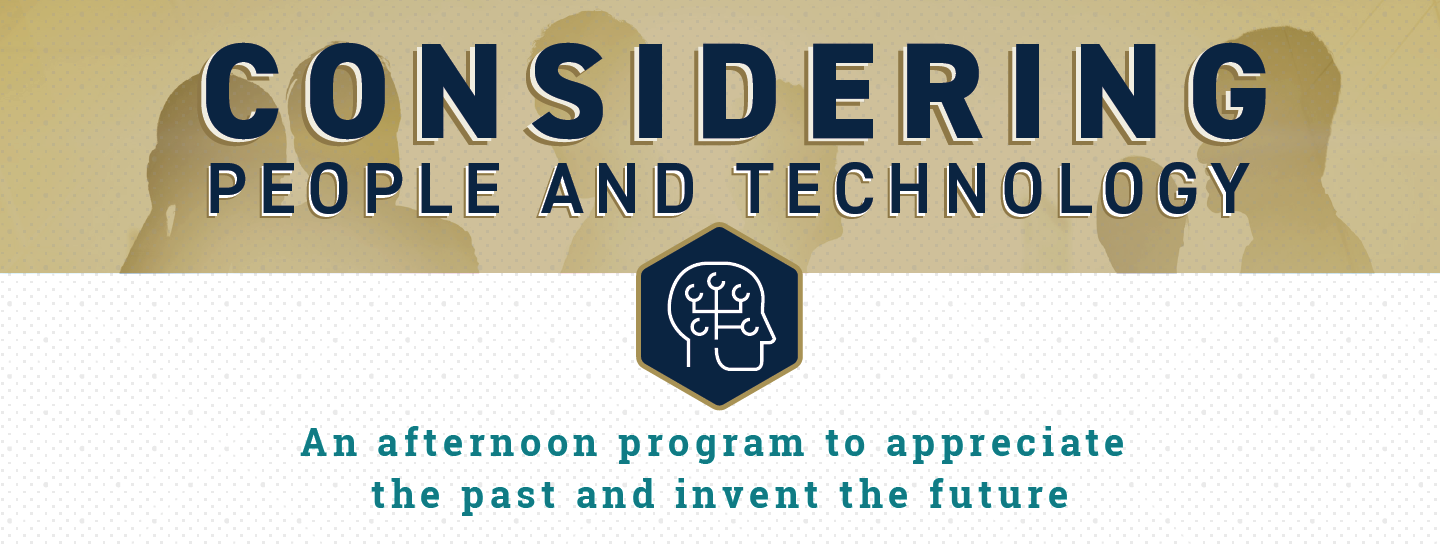
Overview
Please join us for an Institute for People and Technology (IPaT) sponsored campus event focused on people and technology -- past and present. This campus event kicks off with a GVU Brown Bag lecture presented by IPaT's new executive director, Michael Best. His talk is titled, "Considering IPaT: Celebrating the Past and Inventing the Future." After the lecture, IPaT will offer lab tours, a panel discussion featuring distinguished members of the Georgia Tech community in a continuing discussion about people and technology, ending with a beverage and food reception. The event will be held in the Technology Square Research Building (TSRB), 1st floor on Thursday, August 24 starting at 12:00 PM with the Brown Bag lunch (free lunch provided to registrants) and lecture.

QR Code Registration (closed)
Agenda
12:00 PM - 12:30 PM GVU Brown Bag lunch (free lunch provided to registrants)
12:30 PM - 1:20 PM Michael Best's Brown Bag lecture:
"Considering IPaT: celebrating the past and inventing the future"
1:30 PM - 3:00 PM Open house / Lab tours
3:00 PM - 4:30 PM Panel Discussion - "People and Technology" // then Closing Remarks
4:30 PM - 6:00 PM Reception (food and beverages)
LOCATION
Technology Square Research Building (TSRB)
85 5th St NW, 1st floor
Atlanta, GA 30308
Brown Bag to be held in 1st floor ballroom
Panel to be held in 1st floor ballroom
Directions and Parking (Centergy parking deck next to TSRB)
Close up map of TSRB building location and Centergy parking deck
Google map to the Technology Square Research Bldg. (TSRB)
Brown Bag Lecture at 12:30 PM
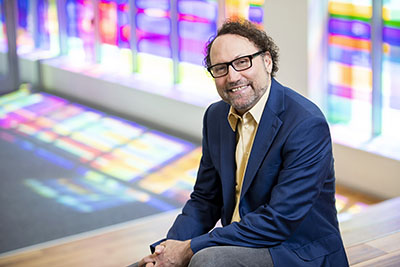
Michael Best
Michael Best
Executive Director of the Institute for People and Technology
Lecture talk: "Considering IPaT: Celebrating the Past and Inventing the Future"
Michael L. Best is Executive Director of the Institute for People and Technology (IPaT) and Professor with the Sam Nunn School of International Affairs and the School of Interactive Computing at Georgia Institute of Technology where he directs the Technologies and International Development Lab. He was founding director of the United Nations University Institute on Computing and Society (UNU-CS) in Macau SAR, China. He holds a Ph.D. from MIT and has served as director of Media Lab Asia in India and head of the eDevelopment group at the MIT Media Lab.
Panel Participants at 3:00 PM
Short bios of our moderator and panelist members below.

Maribeth Gandy Coleman
Moderator
Maribeth Gandy Coleman
Regents' Researcher and Director of Research, Institute for People and Technology
Maribeth Gandy Coleman is a Principal Research Scientist and Director of Research for the Institute of People and Technology at Georgia Tech. She received a B.S. in Computer Engineering as well as a M.S. and Ph.D. in Computer Science from Georgia Tech. In her twenty years as a research faculty member her work has been focused on the intersection of technology for mobile/wearable computing, augmented reality, AI, human computer interaction, healthcare, assistive technology, and gaming. She is a computer scientist focused on developing novel and scientifically validated systems at the “human technology frontier” designed for purposes such as training, rehabilitation, and cognitive therapy, utilizing cutting-edge technology such as augmented (AR) and virtual reality (VR). For example, she led a multi-year initiative (funded by National Science Foundation, Dept of Education, and ACT Inc.) to research the design of interventions for cognitive training and assessment for older adults, persons with disabilities, and K-12 students. She also previously led a projects funded by Georgia Tech’s Health Systems Institute and NIH to develop immersive systems for stroke rehabilitation. She is a project director in the TechSage Rehabilitation Engineering Research Center (RERC) where they are developing wearable and Internet-of-Things computing systems to support persons with disabilities as they age so that they can continue to live independently. Similarly, her work with the AI Caring Institute and the Emory Cognitive Empowerment Program is focused on understanding how AI systems could support people with mild cognitive impairment in activities in the home and community. With funding from NIH, NASA, and industry partners she is currently developing AR/VR systems to support task performance in high stress environments including the intensive care unit.
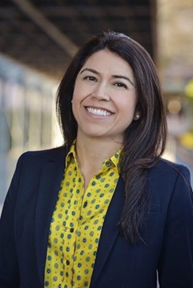
Margarita Gonzalez
Margarita Gonzalez
Principal Researcher and Senior Technologist for Digital Innovation (GTRI-ICL)
Ms. Margarita Gonzalez is a Principal Research Associate at GTRI and Senior Technologist for Digital Innovation in the Information & Communications Lab (ICL). In her applied research and innovation lead roles, Ms. Gonzalez leverages a transdisciplinary, problem-solving approach in the unification of diverse research aims and crafting mental models that support the generation of integrated knowledge for real-world impact. Ms. Gonzalez’ experience is multi-faceted; shaped by her strategic involvement in the development and implementation of technology research and development applied to enterprise transformation, military social work, health IT, and international affairs. Within ICL and GTRI, Ms. Gonzalez is a recognized lead researcher adept at strategizing and conducting applied, transdisciplinary research in support of core lab research capabilities and research thrusts. She works cross-functionally and across disciplines with researchers to translate ICL lab strategy and creatively apply lab capabilities to solve societal challenges. She has led the forging of new relationships and synergies across the lab that extend to the inclusion of external, non-academic partnerships in support of transdisciplinary research collaboration. Ms. Gonzalez holds a Bachelors of Arts (Magna Cum Laude) in Religion from Mercer University and a Master’s of Science in International Relations from the University of Queensland in Brisbane, Australia.

General “Phil” Breedlove
General Philip "Phil" Breedlove
Former NATO Supreme Allied Commander Europe and Distinguished Professor, Sam Nunn School of International Affairs, Ivan Allen College of Liberal Arts
General “Phil” Breedlove joined the Sam Nunn School after retiring as NATO’s Supreme Allied Commander Europe and the US European Command Commander. In these capacities he commanded all US and Allied troops in Afghanistan, Kosovo as well as all NATO operations across Europe and the Mediterranean. As a Distinguished Professor, a title he shares with Sam Nunn, he works with faculty, staff and students on security issues and policy, further he facilitates a number of projects, classes and presentations to advance these same thoughts. General Breedlove brings a wealth of both deep and recent experience in our world’s toughest security and policy issues as well as leadership in situations spanning both peace and conflict.

Ruthie Yow
Ruthie Yow
Service Learning and Partnerships Specialist, Center for Serve-Learn-Sustain, Georgia Tech
Ruthie joined the Center for Serve-Learn-Sustain in 2017. In her capacity as Service Learning and Partnerships Specialist, her work focuses on deepening the capacity of faculty and students to understand and act on the creation of sustainable communities. Specifically, she supports course and project development around themes such as Water, Green Infrastructure, & Citizen Science; and Sustainable Development. She is a graduate of the inaugural Transformation Alliance Academy which trained participants to organize stakeholders around equitable transit-oriented development. Her recent sustainability-related public scholarship includes the 2018 Saporta Report piece, "Citizen Scientists Gathering Information to Inform Policy Decisions in West Atlanta." Before coming to Serve-Learn-Sustain, her research and teaching engaged at the intersection of race and education in the American South. Her book, Students of the Dream: Resegregation in a Southern City, documents the erosion of educational opportunity in metro Atlanta schools and how to address that deepening crisis; it was published by Harvard University Press in 2017. This background in educational research equipped her to nurture the projects of the K12 Education Working Group, a working group of the RCE Greater Atlanta. RCE Greater Atlanta was acknowledged by the United Nations University in 2017 as a new Regional Centre of Expertise on Education for Sustainable Development. The K12 Education Working Group endeavors to connect educators, nonprofits, government agencies and industry around the common mission of sharing and augmenting sustainability-focused curricular resources and programs and nourishing networks of educators dedicated to robust education for all students. Her volunteer work includes service as the Secretary of the Board of Marietta YELLS (Youth Empowerment through Learning, Leading, and Serving) and as the Co-Director of Tutor Recruitment for Common Good Atlanta. Ruthie has a Ph.D. in American Studies and African American Studies from Yale University.
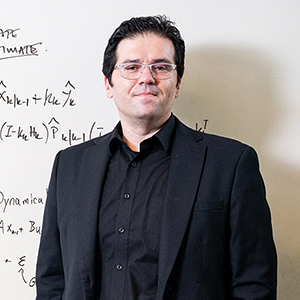
Tansu Celikel
Tansu Celikel
Chair of the School of Psychology, College of Sciences
Tansu Celikel received his Ph.D. in Cognitive Neuroscience at La Scuola Internazionale Superiore di Studi Avanzati (SISSA) in Italy. After conducting postdoctoral research at the University of California, San Diego and the Max-Planck Institute for Medical Research, he set up his first laboratory at the University of Southern California in 2008. Four years later, Celikel moved to the Netherlands to establish the Department of Neurophysiology at the Radboud University, where he has since served as professor and chair. Celikel is also the director of the Donders Institute, a preeminent interdisciplinary institute in Europe devoted to the advancement of brain, cognitive, and behavioral sciences to improve health, education, and technology.

Kirk Bowman
Kirk Bowman
Regents' Entrepreneur and John R. Wilcox Term Professor of Global Development and Identity, Sam Nunn School of International Affairs, Ivan Allen College of Liberal Arts
Kirk Bowman, Regents' Entrepreneur, full Professor and Rise Up & Care Term Chair in Global Development & Identity, joined the Georgia Tech faculty as an Assistant Professor in the Sam Nunn School of International Affairs in 1998 and was promoted to Associate Professor in 2004 and Professor in 2014. He directs study abroad programs in Argentina, Brazil, Portugal, Spain and Uruguay. A specialist in Latin American politics and development, he is author of Militarization, Democracy, and Development: The Perils of Praetorianism in Latin America (Pennsylvania University Press, 2002), Peddling Paradise: The Politics of Tourism in Latin America (Lynne Rienner 2013), Lessons from Latin America: Innovations in Politics, Culture, and Development (with Felipe Arocena, University of Toronto Press, 2014), and Reimagining Global Philanthropy (with Jon Wilcox, Columbia University Press, 2021) and numerous journal articles, book chapters, and reference chapters. His current research projects include a book on soccer and global politics and using experimental design to test the effect of local change agents and youth high performance addictions in neighborhoods of the Global South. He has received research support from the National Institutes of Health, the Ford Foundation, the Social Science Research Council, among others, and was a Fulbright Scholar. He was the University System of Georgia Excellence of Teaching 2007 recipient and the 2008 Carnegie-Case Professor of the Year for the state of Georgia.
Bowman is the co-founder and director of the international NGO Rise Up & Care (www.riseup.care). Rise Up & Care employs an innovative model of international community development that combines global development research, high-level performance organizations in the global south to transform youth, powerful documentary films by top local directors, and children's books illustrated by local street artists. Bowman co-produced six feature documentary films in Brazil (www.WomenofEarthfilm.com, www.badbirdiemanmovie.com, www.jongofevermovie.com). He has been quoted in press, including The Washington Post, The CSMonitor, Globo, and The National Post (Toronto). Bowman currently leads a Vertically Integrated Project (VIP) at Georgia Tech for students from various majors to participate in global development through documentary film, children's books, and targeted global philanthropy.
Bowman directs the Vertically Integrated Project in Soccer, Community, Innovation & Politics (SCIP) that leverages the beautiful game to understand societal forces and to empower organizations that use soccer to transfrom marginalized communities. The SCIP VIP organizes and hosts Soccer Con every 2 years (www.AtlSoccerCon.org). See www.ScoutHeroes.com and www.RiseUp.care for more information.
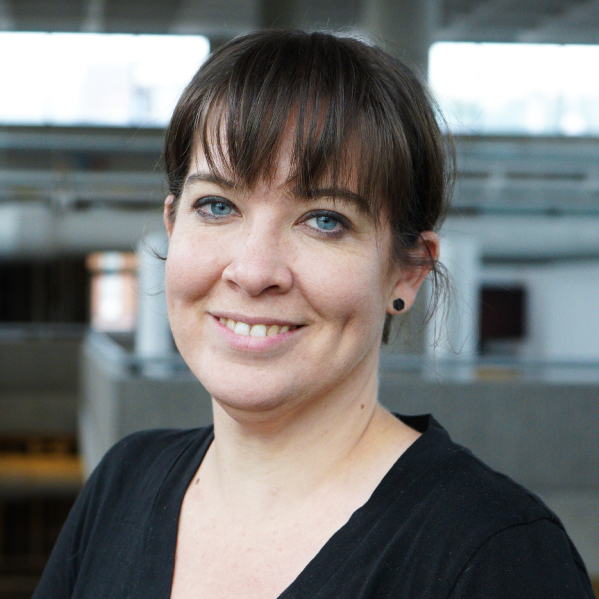
Lisa Marks
Lisa Marks
Assistant Professor, School of Industrial Design, College of Design
Lisa Marks is a designer and educator teaching studio courses in the undergraduate and graduate programs at Georgia Tech. Her current research focuses on methods of combining endangered and traditional handcraft with algorithmic modeling in order to produce new modes of production. She has a Master of Industrial Design from Parsons School of Design and worked in New York for clients including Google, Nike, and Swarovski.
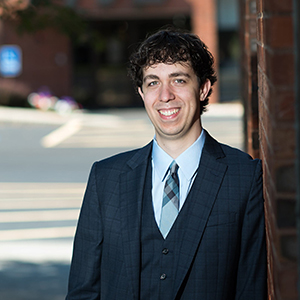
Matthew Gombolay
Matthew Gombolay
Assistant Professor, School of Interactive Computing, College of Computing
Matthew Gombolay is an assistant professor of Interactive Computing at the Georgia Institute of Technology. He was named the Anne and Alan Taetle Early-career Assistant Professor in 2018. He received a B.S. in Mechanical Engineering from the Johns Hopkins University in 2011, an S.M. in Aeronautics and Astronautics from MIT in 2013, and a Ph.D. in Autonomous Systems from MIT in 2017. Gombolay’s research interests span robotics, AI/ML, human-robot interaction, and operations research.
Between defending his dissertation and joining the faculty at Georgia Tech, Gombolay served as technical staff at MIT Lincoln Laboratory, transitioning his research to the U.S. Navy and earning a R&D 100 Award. His publication record includes a best paper award from the American Institute for Aeronautics and Astronautics and the ACM/IEEE Conference on Human-Robot Interaction (HRI’22) as well as finalist awards for the best paper at the Conference on Robot Learning (CoRL’20) and best student paper at the American Controls Conference (ACC’20). Gombolay was selected as a DARPA Riser in 2018, received the Early Career Award from the National Fire Control Symposium, and was awarded a NASA Early Career Fellowship. Dr. Gombolay is an Associate Editor of Autonomous Robots and the Transactions on Human-Robot Interaction.
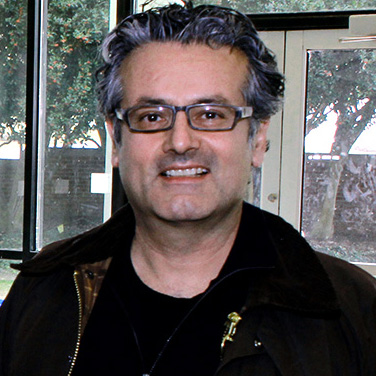
Sabir Khan
Sabir Khan
Associate Professor, Director of the Architecture International Education Program
School of Architecture, College of Design
Sabir Khan has a joint appointment in the School of Architecture and in the School of Industrial Design (2011-current). Prior to that he served as Associate Dean of the College for undergraduate studies and creative activity (2002-2011) and Assistant Professor in the School of Architecture (1995-2002). In 1999 he developed the curriculum for the Common First Year, the multi-disciplinary program for all undergraduate students entering the college. During the years he directed the CFY (1999-2011) the program served from 140 to 280 freshmen each year. In addition to his primary appointment in the College of Design, he directs the Barcelona Summer Study Abroad program for the College of Computing.
As a teacher, designer, and scholar, he is interested in how cross-cultural and cross-disciplinary framings inform the production, consumption, and interpretation of architecture and design. His interest in design pedagogy stems from a strong belief that the potential of architecture -- as a discipline, a discourse, and a practice -- lies in being fully in the world. He has developed and taught design courses to engineering, computing, and liberal arts majors. As part of this process, he collaborates with colleagues in engineering and computing on funded research projects.
Closing Remarks
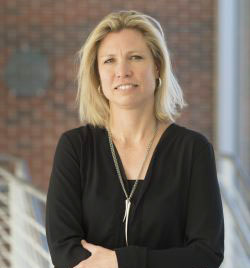
Julia Kubanek
Julia Kubanek
Vice President for Interdisciplinary Research, Georgia Tech
Julia Kubanek serves as Georgia Tech’s Vice President for Interdisciplinary Research and is a professor in the School of Biological Sciences and the School of Chemistry and Biochemistry. In this role, she oversees and supports interdisciplinary activities at Georgia Tech including the Interdisciplinary Research Institutes (IRIs); the Pediatric Technology Center (PTC), the Novelis Innovation Hub; the Center for Advanced Brain Imaging (CABI); and the Global Center for Medical Innovation (GCMI). She also partners across the institute on developing and advancing new research initiatives based on student and faculty interests, expertise, and societal need.





